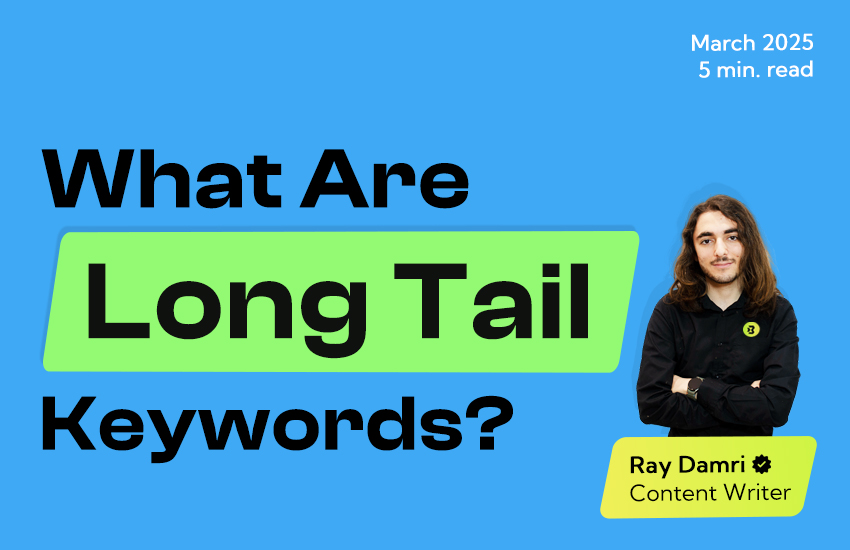What Are Long Tail keywords?
So, what exactly are long tail keywords? Think of them like this: instead of a super broad, popular term like “shoes” (that’s a “head” term), you focus on something much more specific, like “women’s vegan leather running shoes size 8”. See the difference? These longer, more detailed phrases are long tail keywords. They usually have lower search volume than the big, broad terms, meaning fewer people search for them each month.
But here’s the secret sauce: the people who do search using these specific phrases know exactly what they’re looking for. They’re often further along in their buying journey and closer to making a decision. While “shoes” could mean anything, someone searching for “women’s vegan leather running shoes size 8” has a very clear intent. Tapping into these specific search queries means you’re talking directly to people who are genuinely interested in what you offer.
How Can Long-tail Keywords Help With SEO?
How do these longer phrases actually help your website’s performance? Well, first off, because they’re so specific, the competition is usually way lower. Fewer websites are trying to rank for “best budget ergonomic office chair for back pain” compared to just “office chair.” This gives smaller websites or newer blogs a fantastic chance to appear higher in search results for these niche terms, attracting valuable organic traffic.
This leads to the next big win: better conversion rates! Because the searcher’s intent is so clear, the traffic you get from these specific phrases is often highly qualified. They land on your page expecting to find exactly what they searched for. If you provide the right information or product, they’re much more likely to buy, sign up, or take whatever action you’re hoping for. It’s about attracting the right visitors, not just more visitors.
Are Long Tail Keywords Important For SEO In 2025?
Thinking ahead to 2025 and beyond, these specific phrases are arguably more crucial than ever. Think about how people search now – we use voice assistants, ask full questions, and expect direct answers.
Search engines are getting smarter, focusing heavily on understanding user intent behind search queries. These longer, more conversational phrases perfectly match this trend.
Expert Tips: How To Find Long-tail Keywords
It’s easier than you might think! Start by putting yourself in your customer’s shoes. What specific questions would they ask? What problems are they trying to solve? Brainstorm topics related to your business or blog.
Then, use some handy helpers:
Google Autocomplete: Start typing a relevant phrase into Google and see what suggestions pop up.
“People Also Ask” Box: Look at the related questions Google shows in search results.
Online Forums & Q&A Sites: Check out places like Reddit or Quora where your target audience hangs out. What are they asking?
Keyword Research Tools: Tools like Semrush or Ahrefs (even their free versions or trials) can uncover tons of related longer phrases and show you search volume data.
How To Properly Use Long Tail Keywords For SEO
Finding these phrases is step one; using them effectively is step two! The key is natural integration. Don’t just stuff your pages with awkward phrases – that won’t help anyone and can actually hurt your efforts. Instead, weave them naturally into your website content where it makes sense.
Think about including them in your page titles, headings (like H2s and H3s!), image alt text, product descriptions, and, most importantly, within the main body of your blog posts or articles.
Final Thoughts & Keywords Suggestions
Diving into the world of longer, specific search phrases isn’t scary at all! By focusing on these long tail keywords, you can sidestep the intense competition for broad terms, attract visitors who are genuinely interested in what you offer, and ultimately see better results – whether that’s more sales, sign-ups, or engaged readers. It’s about working smarter, not just harder, to connect with your perfect audience online.





FAQ On How Keywords Work
Are long-tail keywords important for SEO in 2025?
Yes! In 2025, understanding specific search intent via these relevant keywords is vital. They attract qualified traffic and remain key to a solid SEO strategy.
How do I find long tail keywords using SEO tools?
Enter a broad keyword into a keyword tool. Explore filters for longer phrase suggestions or related questions to generate valuable ideas for your content.
What is a good source of long-tail keywords?
Google’s “People Also Ask” and Autocomplete offer great keyword ideas. They show relevant keywords based on real user search term behavior, indicating clear search intent.






















